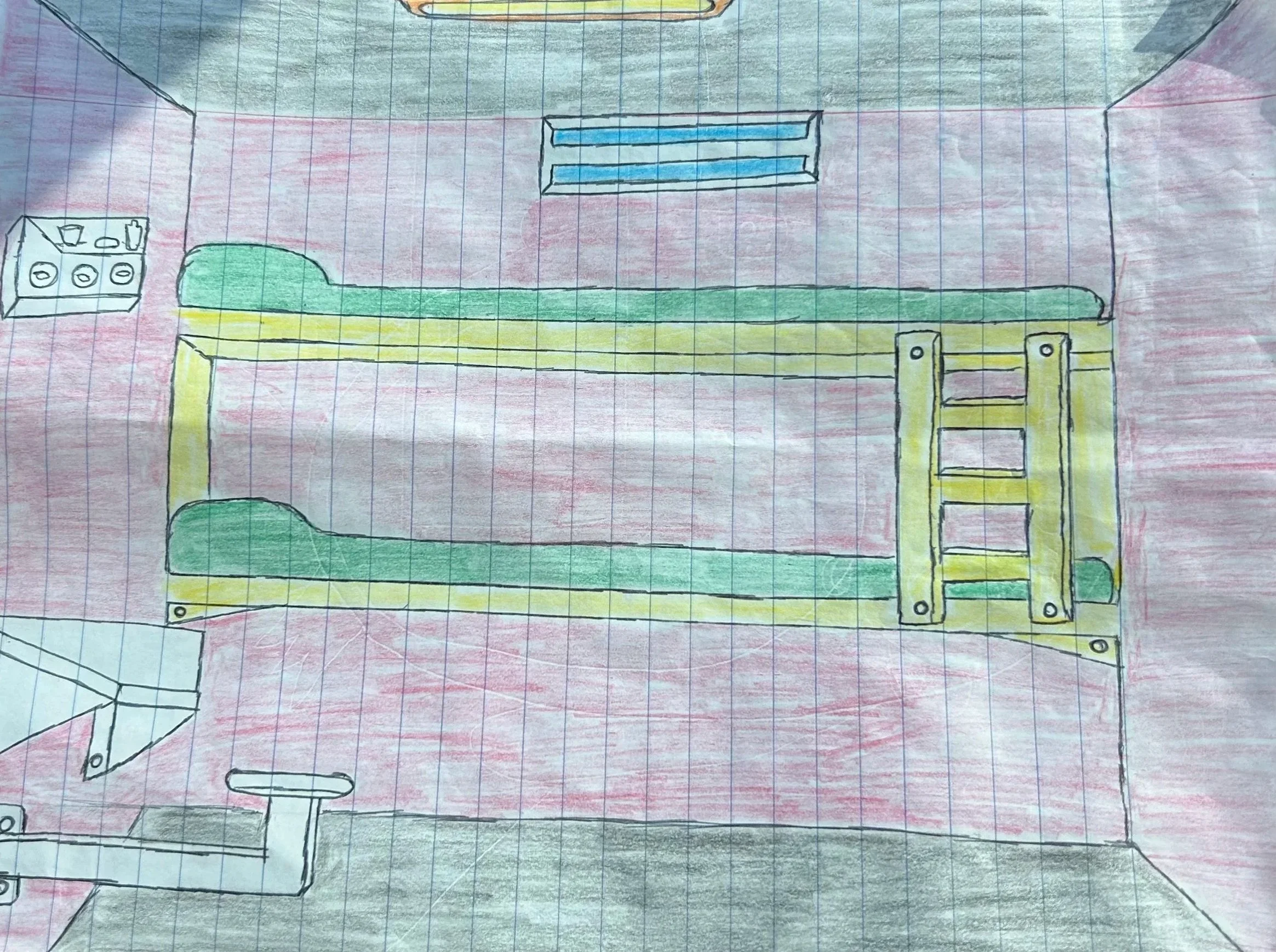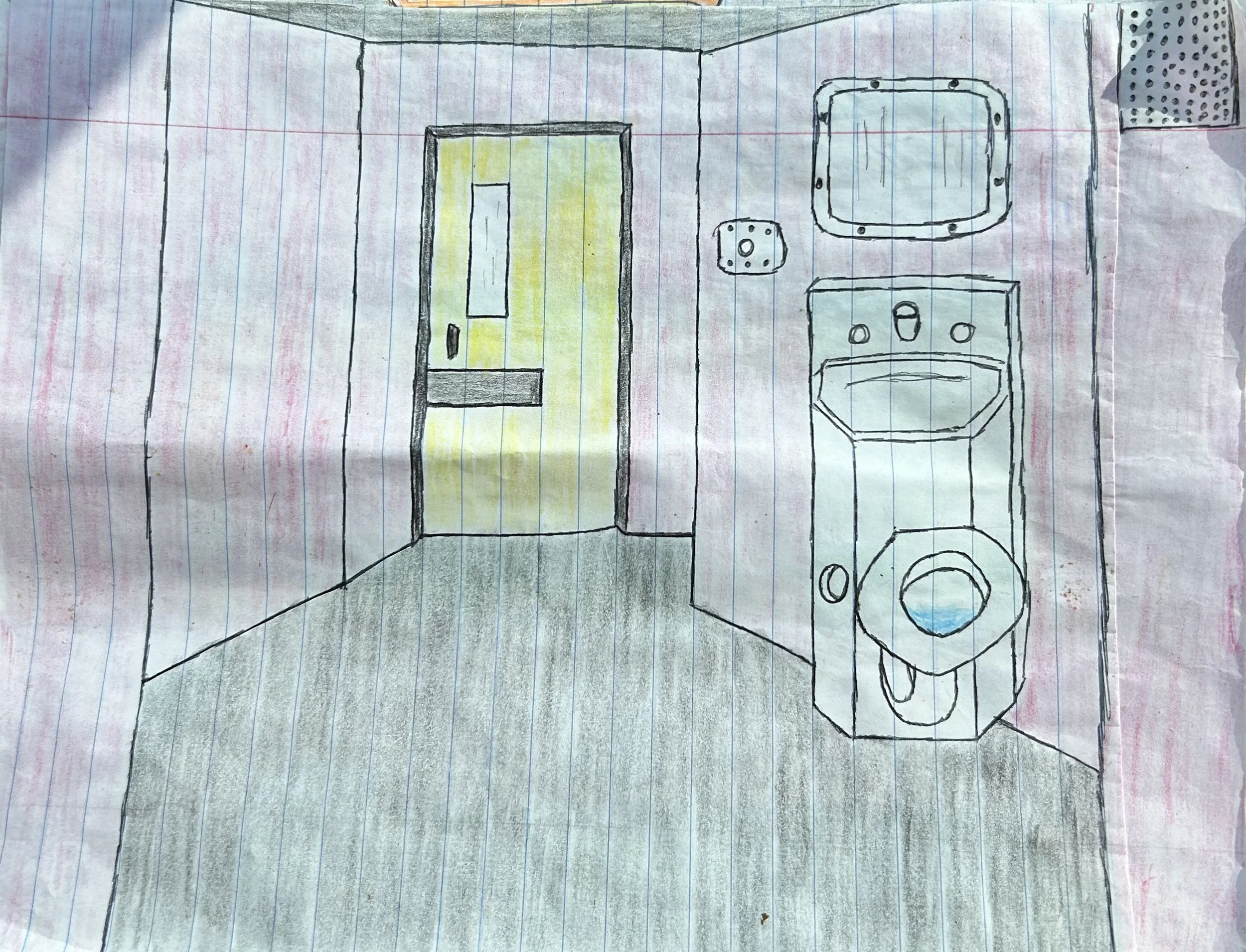Words by Mario Guevara
The only known journalist detained by ICE on U.S. soil sends a letter to The Bitter Southerner.
—
This is Mario Guevara’s harrowing account of what’s happened to him, in detainment, since his arrest on June 14.
September 19, 2025
PART 1
On the afternoon of Saturday, June 14, 2025, my life changed completely. Just as I was doing a regular news coverage, I was arrested by the police in the state of Georgia. I was covering a protest against the federal government for the continuous raids and arrests of immigrants when a couple of local police officers arrested me along with about 20 other people, all of them U.S. citizens. I was the only exception, since I only had work authorization, not citizenship. That was the beginning of my worst nightmare.
I was transferred to the DeKalb County Jail where I was immediately placed on an ICE Hold. Two days later, a couple of immigration agents came for me. I was transferred in a Dodge Charger to the Folkston ICE detention center.
Without any justification, ICE gave the order to put me on “admin segregation.” They put me in a small cell where, for 72 days, they only let me out for two hours each day to breathe fresh air and see the sunlight — but from inside a cage in the backyard of the unit.
Although the cell had a window, it had a type of tint that prevented me from seeing outside. Of course, the white light in the ceiling of the “room” stayed on 24 hours a day.
In the first two weeks, my sleep was completely disrupted. I began to have nightmares that the authorities were chasing me and shooting at me, and that they were raiding my house and arresting my whole family.
PART 2
But not everything was bad in those days. I received word that the charges against me from when I was arrested had been dismissed.
Unfortunately, almost immediately, I was told that another locality had decided to open a case against me for traffic violations.
They presented me with three traffic charges and issued arrest warrants for me.
I later learned that ICE had been planning to use all of that against me at the bond hearing.
In front of the immigration judge, immigration accused me of having obstructed undercover operations, all in order to delay my process and extend my stay behind bars, and that is what happened. I was granted bail, but ICE prevented my release in every way they could.
On July 3, two Gwinnett County sheriff’s deputies came to see me in Folkston.
They read me the traffic charges against me and told me that I would be transferred to the Gwinnett County Jail and if I paid almost $4,000 in bail on the charges I’d be immediately released.
I notified my family, and they went to the Gwinnett jail to pay the required amount.
When we were two hours away from Gwinnett, the deputies stopped and searched my things. At that point, they confiscated my two cell phones.
PART 3
When I arrived at the jail, they booked me, and once again, they promised me that I could pay bail and be processed and immediately released.
My siblings and my children paid my bond on the traffic charges, and then I realized it was a trick.
Two ICE agents came out of a small office and once again handcuffed my hands and feet.
From there, I was transferred to the jail in the town of Floyd, where I was confined with the general population. We were six people in the same four-bed cell. I had to sleep on the ground for three nights.
I don’t have much to say about that time, because I think everything was relatively normal. It even seemed to me that all the detainees were treated relatively fairly.
I do have a lot to say about the federal prison in Atlanta, where ICE transferred me on Monday, July 7.
The prison is not only old, ugly and gloomy, but it is also designed to drive people crazy.
With me, they almost succeeded. I had barely been admitted for two hours when I was already being extorted.
A group of several non-immigrant inmates took photos of me and charged $60 a day to not hurt me. This was all because I was well-known outside of jail.
Most of the Hispanics approached me in a friendly way to greet me and tell me their stories. This inadvertently gave me away.
My family made these payments through electronic transfers.
PART 4
These were three very hard days. I didn’t eat anything, and I had severe headaches. I was afraid that they were going to kill me and cause more suffering to my family.
Thank God my lawyers were informed about what was happening to me and managed to convince the government to transfer me to another detention center.
They returned me to Folkston and once again put me in solitary confinement.
When I returned to Folkston, I began to have nightmares again. The confinement and loneliness caused panic attacks, and I lived in constant fear.
In the following weeks, I lost my appetite again and my mood was very low.
I had to speak with the prison psychologist — three times — and she provided me with some consolation.
We concluded that I was sinking into depression because I was constantly thinking and believing that something bad, and even worse than what was happening, was waiting for me. I refused to see a psychiatrist, nor did I want to take any sleep medication.
Faith in God and feeling the great support of my family, friends and many members of my Latino community lifted my spirits and, little by little, I regained the desire to continue living and fighting.
It’s been three months since my imprisonment, and I can say that it hasn’t been easy at all.
PART 5
Many times I wake up angry, other times very sad or frustrated. I miss my loved ones and miss freedom more than ever.
I don’t know why ICE wants to continue treating me like a criminal. It pains me to know that I have been denied every privilege and the right to be free when I have never committed any crime.
This whole situation has me devastated, and not only morally, but also economically, because I am the breadwinner for the home.
Since my arrest, I have lost tens of thousands of dollars and my company, the news channel MGNews, is on the verge of bankruptcy.
But I have to remain strong and confident that the United States still has some caring and decency left and that in the end justice will prevail.
I hope that it will be soon, because for me, every day is like a week.
Hopefully, soon all my tears and my family’s tears will be wiped away, and we can have fun and smile, triumphant, as we did before, together and in absolute freedom.
— Mario Guevara
Drawings by Mario Guevara
LEGAL CASE OVERVIEW
Guevara was arrested by local police in DeKalb County on June 14, 2025, while reporting on a protest against the Trump administration. He was subsequently transferred to U.S. Immigration and Customs Enforcement custody on June 18, 2025. At a bond hearing before an immigration judge on July 1, 2025, the government asserted that Guevara posed a danger to the community because of his reporting. The immigration judge rejected that argument and granted bond.
After rejecting efforts by Guevara’s family and attorney to pay the bond and have him released, on July 3, 2025, the government simultaneously filed an emergency motion for a discretionary stay of the bond order and an appeal of the order with the Board of Immigration Appeals. In arguing for a stay and reversal of the bond order, the government repeatedly asserted that Guevara presents a danger to the community because he films and records law enforcement activities and shares his reporting with the public. The Board of Immigration Appeals granted the stay of the bond order on July 7, 2025.
Since July 10, 2025, all pending criminal charges against Guevara have been dismissed, yet he remains in detention. Guevara has committed no crime, had no criminal history prior to his June 14, 2025 arrest, and has no pending criminal charges against him now.
On August 20, 2025, Guevara's legal team filed a petition of habeas corpus in federal court in Georgia asserting that his continued detention violates the First Amendment, and on August 21 filed an emergency motion seeking his immediate release. As we publish this story, the federal court has yet to rule on the motion, and Mr. Guevara continues to be detained by ICE.
Filings in legal case available here: https://www.aclu.org/cases/guevara-v-francis
Guevara’s legal team includes the ACLU; ACLU of Georgia; the University of Georgia School of Law’s First Amendment Clinic; Garland, Samuel & Loeb, P.C.; and Diaz & Gaeta Law, LLC.
Mario Guevara is a Spanish-language journalist who has resided in the metro Atlanta area for 21 years. In his home country of El Salvador, he worked as a photojournalist for La Prensa Gráfica, one of the two largest national newspapers. Fleeing violence and harassment on account of his work, he lawfully entered the United States in 2004. Here, he became a much-respected reporter for Mundo Hispánico, Georgia’s largest Spanish-language newspaper. He was nominated for a Southeast Regional Emmy Award in 2023, 2021, and 2019, winning the Emmy in 2021 for his reporting. In 2021 and 2022, he was recognized by the Georgia Hispanic Chamber of Commerce as one of the 50 Most Influential Latinos in Georgia (“Latinos Influyentes en Georgia”). In 2019, his reporting was the subject of a New York Times documentary titled Boca del Lobo. In 2024, Guevara launched his own digital news organization, MGNews, which is a vital source of information for the Hispanic community in Atlanta, as well as for people around and outside of the state of Georgia.
Guevara lives in Lilburn, Georgia, in Gwinnett County, with his wife and three children, two of whom are U.S. citizens and one of whom is a recipient of Deferred Action for Childhood Arrivals (“DACA”). His mother, brother, and sister are U.S. citizens. His brother is a U.S. military veteran, who served in Afghanistan. Guevara has work authorization, a social security number, and pays taxes. He is eligible for lawful permanent residency.




